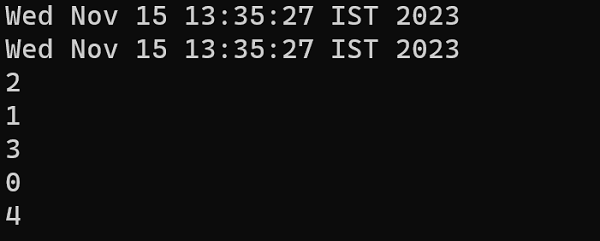Difference Between Fork/Join Framework and ExecutorService in JavaIn Java, the Fork/Join framework is majorly utilized for providing features and functionalities related to parallel processing and programming and this is carried out by dividing or breaking down an operation into smaller operations or instructions and they are processed with the help of available cores of CPU. Similarly, ExecutorService in Java can be defined as an interface that is responsible for providing replacements regarding management and controlling of threads. The java.util.concurrent package is responsible for storing the ExecutorService interface in Java. The java.util.concurrent package was launched in Java 5. Fork/Join Framework in JavaThe Fork/Join framework of Java is mainly utilized for providing features and functionalities related to execution of task framework along with maximum performance. The parallel computing engine is mainly utilized for many high-level frameworks. Parallel programming is supported by the fork/join framework which can be useful in resolving problems using the divide and conquer technique. The problems can be resolved using the divide and conquer technique in the below-mentioned way:
Let's understand in detail about the features and functionalities of Fork/Join framework in Java with the help of a Java example program. Filename: ForkAndJoin.java Output: 
ExecutorService in JavaIn Java, the ExecutorService is majorly utilized for managing and controlling the order and execution of all the asynchronous tasks which are sometimes referred to as Runnable and Callable interfaces instances. The tasks can be submitted to an ExecutorService instead of dealing with threads directly. The tasks submitted to the ExecutorService will be taking care and managed by it regarding threads. Let us understand in detail about the ExecutorService in Java with the help of a Java example program. Filename: ExecutorServiceExample.java Output: 
Let's understand about the features and functionalities of both Fork/Join framework and ExecutorService in Java with the help of another example program. Example 2: Filename: ForkJoinExecutorService.java Output: Result Obtained By Fork/Join Framework: 120 Result Obtained By ExecutorService: 120 Fork/Join Vs. ExecutorService in JavaLet's understand the major differences between Fork/Join framework and ExecutorService in Java with the help of a table.
|
 For Videos Join Our Youtube Channel: Join Now
For Videos Join Our Youtube Channel: Join Now
Feedback
- Send your Feedback to [email protected]
Help Others, Please Share









